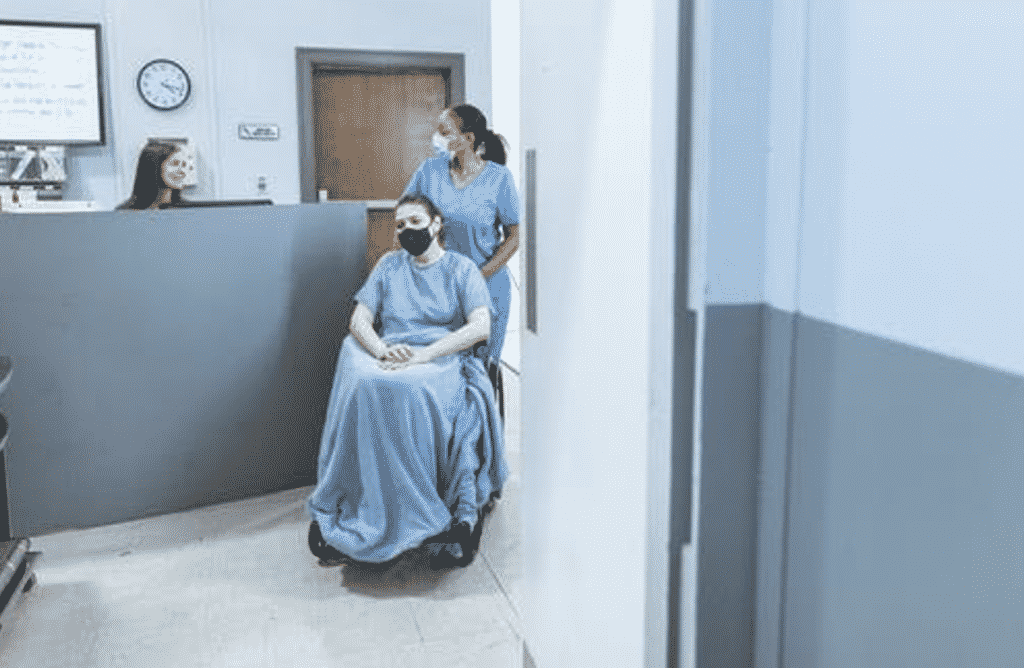The COVID-19 outbreak in 2020 caused widespread changes in the nursing profession. A virus has not posed a threat quite like this since the 1918 Spanish flu, sickening 1/3 of the world’s population in just a year.
Cities and states across the country were on lockdown for days; one of our immediate priorities was to “flatten the curve.” Nurses urged people to stay at home and prevent the spread of the virus in hopes of preventing a catastrophic hospital system overload.
Unfortunately, over 600 American healthcare professionals have already succumbed to the virus (over a 100 were nurses caring for COVID-19 positive patients).
In addition, some nurses outside the ER and COVID-19 care and telemetry units either got their work hours slashed, were furloughed, or terminated.
In the wake of yet another COVID-19 outbreak, public health nurses listened to colleagues on the front lines, took notes, fought for their rights, protection, and pushed for change for the betterment of their profession and patients.
As a result of this financial hurdle, nurses were hit hard, especially since certain hospital areas were closed because they weren’t necessary.
Therefore, nurses who still wanted to keep their jobs and move forward in their field of expertise enrolled in online nursing courses for better prospects and benefits.
Nevertheless, with their hard work, sacrifice, and dedication, nurses and other healthcare professionals helped us see through the events of COVID-19. The lessons we learned through those times prepared healthcare facilities and people to be more vigilant and take self-care more seriously.
With that in mind, let’s examine the effects of COVID-19 on the future of nursing.
A growing number of nurses are learning how to practice nursing outside the patient’s bed
Nowadays, nurses are no longer required to remain at the bedside for patients. Instead, nurses are showing more flexibility by attending nursing schools and enrolling in advanced online courses to move ahead in their careers to take on more significant roles.
COVID-19 is a huge catalyst that drove nurses to enter non-medical roles. Some of the career options included palliative nursing, blog writing, legal consultancy, insurance management, or even starting a business.
In addition, the COVID-19 pandemic also served as a wake-up call for nurses to look for more avenues in the medical sector, that involve assistance, administrative or staff management roles.
Telemedicine: A New Frontier
Doctors, nurses, and other healthcare professionals prefer meeting up with patients in person since it allows them to establish better connections. Despite its difficulties, telemedicine has proven to be a convenient tool in many situations during the pandemic.
Telemedicine has many benefits, including:
- Preventing virus exposure for the sake of patient safety
- Increasing accessibility to healthcare for patients unable to visit a doctor
- Managing healthcare costs efficiently
- The reduction of trips to the doctor for sustainability and reduction in greenhouse gas emissions
A doctor or nurse can also look into their patients’ personal lives via telemedicine, giving them better insights into environmental factors that influence their health.
Telemedicine won’t work when a patient needs a physical examination, a shot, or a blood test. Still, it is possible to diagnose and give prescriptions remotely.
Telehealth will present more opportunities for nurses
The ongoing pandemic defined new ways for nurses to enhance the quality of care for their patients. With social distancing rules put in place, clinicians can book appointments from afar with Telehealth, long after COVID-19.
Nurses who desire one-on-one contact with patients, but don’t want to stand all day for 12-hour shifts, will appreciate this. In addition, telehealth nursing offers the benefit of shorter shifts and, in some cases, even working remotely (from home).
Telehealth also bridges the gap between healthcare professionals and rural areas. Connecting to a dedicated doctor or nurse for a consult or diagnosis is easier than ever.
The public is aware that nurse safety is lacking
During the COVID-19 pandemic, nurses were forced to work in hazardous conditions without the proper personal protective equipment (PPE).
Nevertheless, nurses have worked in hazardous conditions for years, including working with aggressive and violent patients, workers with unsafe staffing ratios, and much more. Nurses have historically demanded safety because they understand the risks.
Our healthcare system is still unprepared to handle patient care safely during a pandemic. The public and hospital administrators are listening to nurses asking for safe working environments.
Across the country, nurses have protested and held press conferences to bring awareness to this serious issue. In April, National Nurses United protested in front of the White House, urging Congress to take measures and protect nurses.
Nurses adapt well to difficult situations
To prevent the virus from spreading within hospital units and vistors, nurses developed new safety protocols.
For instance, nurses began moving IV drips and other machines to patient rooms’ doors without constantly walking into or out of patient areas. Although it’s a simple method, it worked.
By using PPEs, nurses were able to enhance the quality of care to their patients. They were empathetic and understanding towards their patients even in trying times which helped patients recover quicker.
Since nurses are also known for their resourcefulness, they found solutions to almost any personal problem of their patients.
Before We Part!
In the battle against the COVID-19 pandemic, healthcare professionals who worked on the front lines were lauded for their efforts.
Nurses who managed to survive the COVID-19 pandemic showed how resilient they can be and how useful they are during emergencies. Despite overcoming extraordinary obstacles and challenges, nurses are the toughest humans on Earth.
All the facts mentioned above show that nurses are adapting, despite the pandemic.
